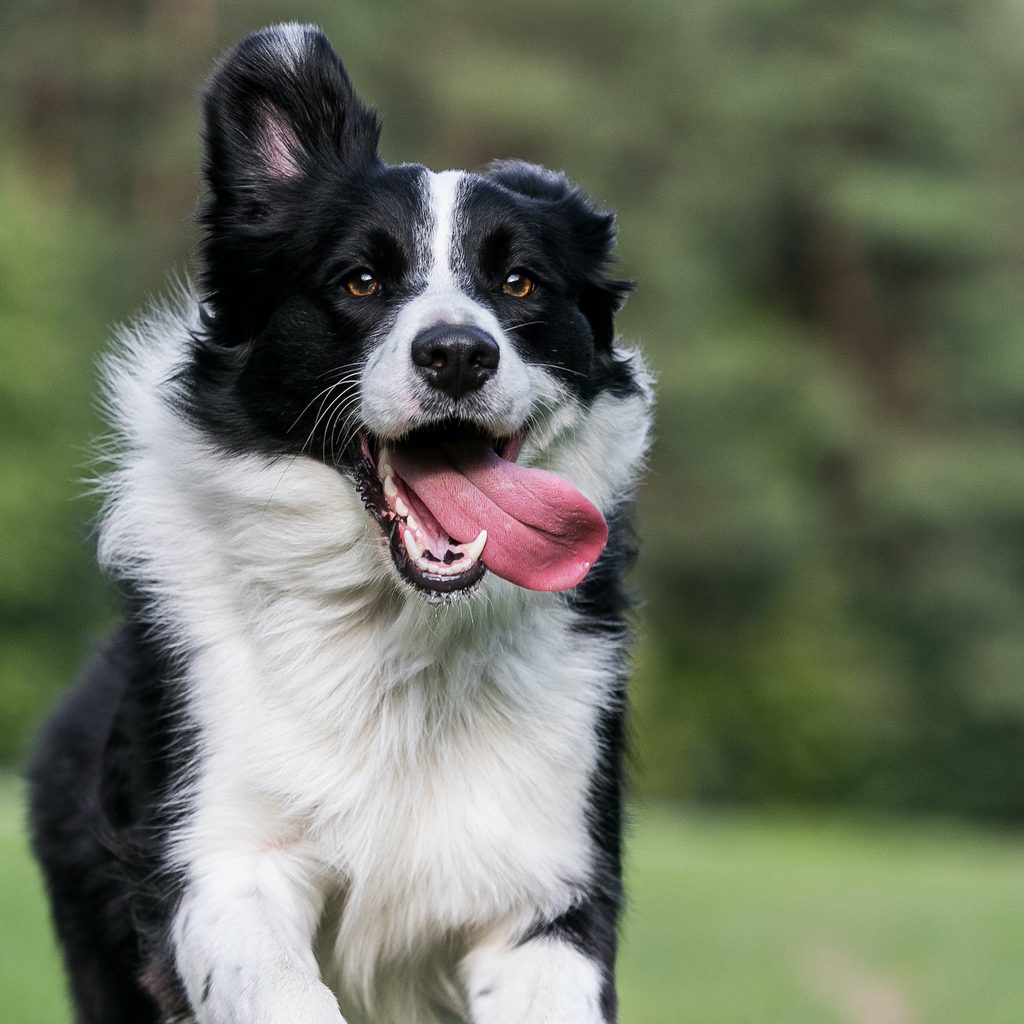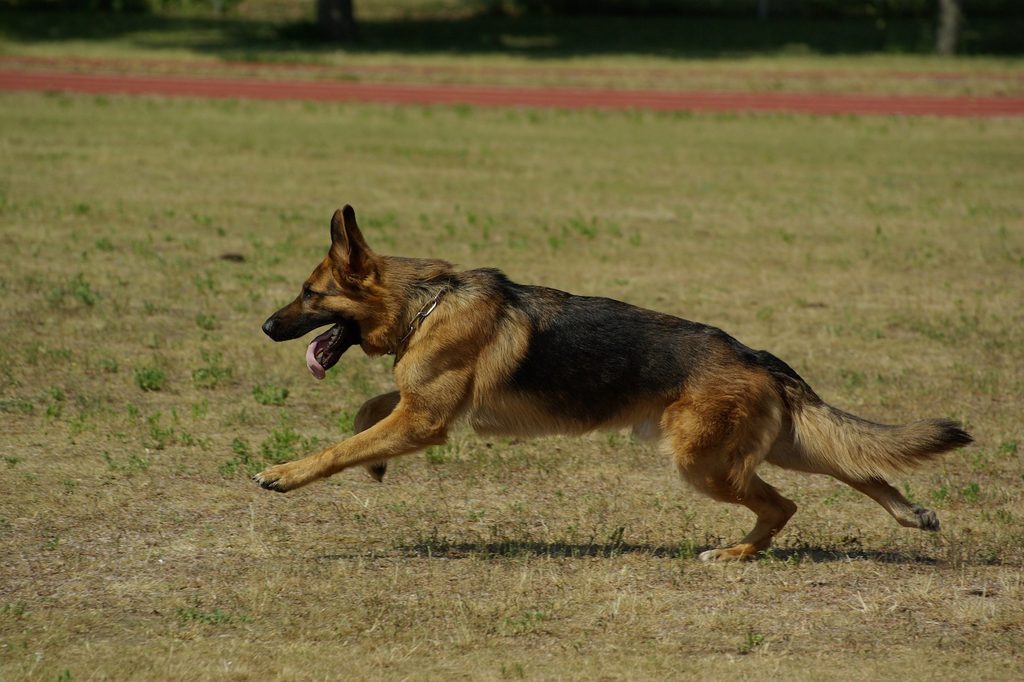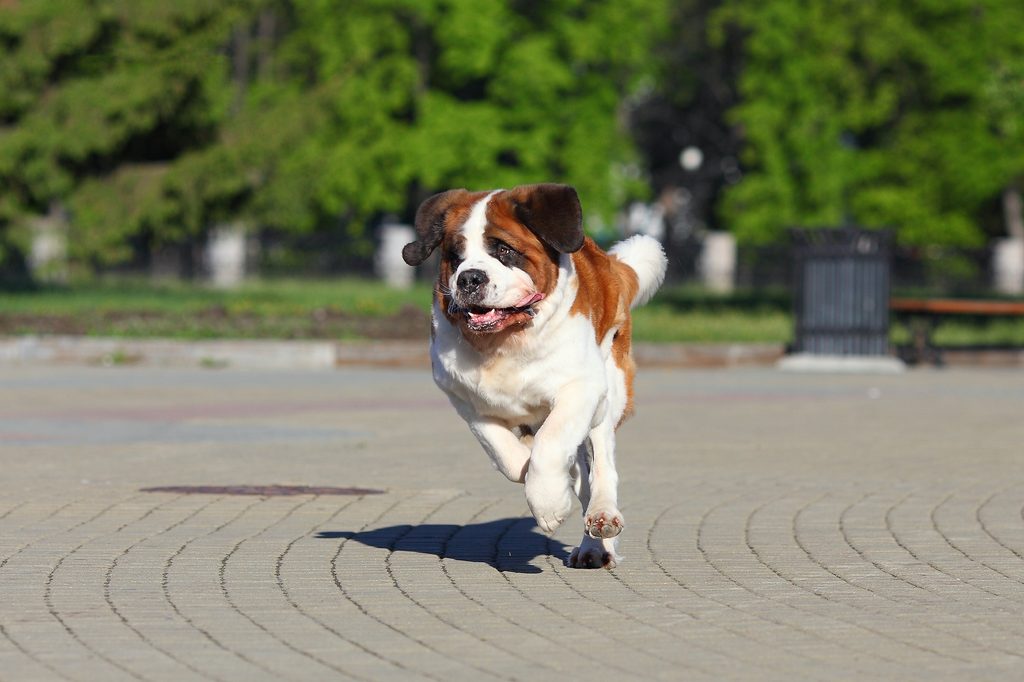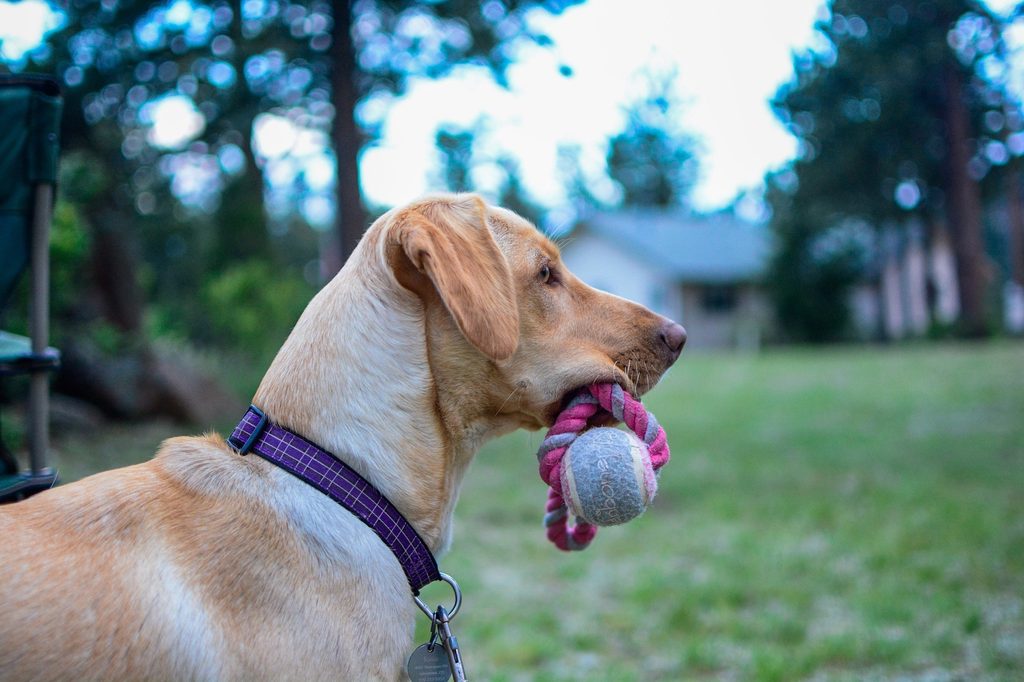You’re just chilling in your home or backyard with your dog. Suddenly, they book it and start running around in circles. You would think they were trying out for the Kentucky Derby — that’s how fast they’re attempting to move — except they’re not a horse. The problem? You can’t figure out what’s going on or why they’re displaying this behavior. It can feel jolting and alarming for a first-time pet parent or one whose previous dogs never acted this way. It can look like nervous energy being let out, but what is this behavior, really?
Your dog may have a case of the zoomies. The word sounds silly, but it’s a real-deal dog behavior. Why do the dog zoomies happen? Should you be concerned? Here’s what to know about this often-seen and always beloved doggie phenomenon.
What are the zoomies, and what causes them?

If you’ve ever found yourself typing “zoomies meaning” into Google, you’re not alone. Mot everyone has heard this word before! ‘Zoomies’ is a term used to describe a natural dog behavior that occurs when dogs get a sudden burst of energy. To get that energy out, the dogs dash around in circles (or figure eights) as if they’re doing laps around a racetrack. It’s like the Tasmanian Devil mixed with Allyson Felix!
Dog zoomies are typically a short-lived behavior, lasting a couple of minutes max, and tend to be more common in puppies. Adult and senior dogs can get a case of the zoomies, too, but it might look a little different as your dog gets older.
You might notice your dog usually gets the zoomies at the same time. This tendency is normal. Dogs may frequently get zoomies when you get home from work — they’re so excited to see you and have been loafing around all day. Your dog may also display this behavior before or after a meal or treat for similar reasons (excitement). Oddly enough, one of the most commonly reported times for zoomies is after a dog poops!
Other times, the pent-up energy is nervous, so you may notice your bath-hesitant dog getting the zoomies following a cleaning session. You’ll also see this when nervous dogs pace in circles, though a truly nervous dog will be much more tense and will likely run to a hiding spot instead of continuing to run.
Are zoomies a cause for concern?

Dog zoomies can feel abrupt and concerning. The good news is that zoomies are generally not a reason for any worry. They’re simply normal, harmless behavior. However, if your dog is doing zoomies daily — particularly past puppyhood — it could be a sign of a behavioral issue or an unmet need for physical or mental stimulation.
As always, your veterinarian is your best resource for your dog’s healthcare. They can help you determine if the zoomies are a sign of something else and plot out strategies to stop the behavior.
Can my dog get hurt during zoomies?

While dog owners love seeing their furry friends galloping around without a care in the world, they start to look at zoomies very differently after their dog slips or loses traction on the floor. Although most dogs can effectively stop themselves if an object suddenly comes into their path, any number of freak accidents can cause your fast-moving Fido to trip or run into something. If you’re able, you can prevent this by guiding your zooming dog to a larger room or yard where there’s plenty of space to run.
Additionally, some dogs can hurt their legs, paws, or even back when they start or stop running. Sudden movements are more likely to result in injury, especially if your dog hasn’t been active or warming up their muscles, so do your best to stop your dog from jumping onto the couch or leaping off the bed while zooming.
Some dogs with heart or lung concerns may put themselves at risk by getting too worked up, so be sure to ask your vet about exercise intolerance if your pup has any kind of preexisting condition. If you need to, you can learn strategies for redirecting their energy and excitement that’s less likely to result in stress on their body.
How can I stop the zoomies?

In a healthy, normally happy dog, you can simply let the zoomies take their course. They shouldn’t last more than a minute or two – if that — and are usually not the sign of any underlying medical or behavioral issue. Trying to step in and stop the zoomies may actually prolong the event or turn it into a game, with your dog pivoting as they think you’re chasing them.
That said, if you’re concerned or think it’s a sign of an unmet need, speak with your dog’s vet to rule out any underlying medical issues. Zoomies are the result of pent-up energy. If your dog constantly gets them, you may be able to pinpoint why. A few solutions may include the following.
Enlist in dog care assistance
For example, if they’re home for long hours every day, you may want to look into a dog walker or doggie daycare. These services will help your dog get the physical and mental stimulation they need throughout the day, so they won’t have so much unused energy when you arrive home. You can both cuddle after a long day.
Add playtime sessions
If you’re home often or can take your dog places, such as to work, make a point to engage them more frequently during the day. Just 5 minutes of tossing the ball every hour or two, combined with two to three walks per day, can tire a pup out in a good way. And just think of how much fun they’ll have!
Give plenty of treats and praise
Sometimes, the energy is nervous, such as from a bath. Real talk: Some dogs simply don’t like baths and never will. However, you may be able to make the experience more enjoyable. Treat them and offer plenty of praise to help your dog associate bath time with positive vibes. These tactics may also help with other grooming needs, such as nail clippings, brushing teeth, haircuts, and combing fur.
Reevaluate training tactics
Training sessions can also cause anxiety in some dogs, particularly if they aren’t taking to it quickly. You may hire a professional trainer specializing in dogs with lots of energy or anxiety. Or, perhaps the fix is more straightforward: Are you using long commands instead of short and sweet ones? Scolding your dog instead of using positive reinforcement like treats? Changing your approach may change your dog’s reaction.
Bottom line? The zoomies are generally not a cause for alarm. It’s a normal dog behavior! It can be puzzling to watch your dog dash around in circles like a track star (bonus points for flips and hops), but it’s normal canine behavior. There’s usually no need to try to stop the zoomies–simply let them run their course. If it starts to become a new or more common behavior, it may be a sign your dog needs new ways to engage in physically and mentally stimulating activities throughout the day. Play sessions, walks, doggie daycare, agility courses, and food puzzles are all great ways to engage your dog. Speak with a vet if you’re concerned about physical or mental health issues.




